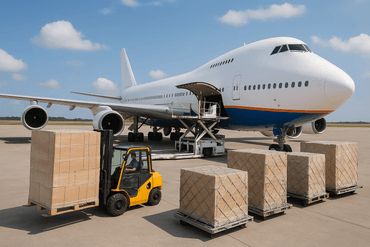
Top 5 misconceptions about the packing list



Many shippers may be aware of the importance of the Bill of Lading and its vital role in ensuring the proper transportation and retrieval of an ocean freight shipment. However, the importance of the shipping packing list must not be overlooked.
Whether you’re filling out a packing list to export commercial merchandise or to move overseas, there are important aspects of this document you need to be aware of. A simple misunderstanding of this document may result in unnecessary delays and their corresponding fees.
Here are the five most common misconceptions regarding the shipping packing list.
1. Information and details on a packing list should be kept to a minimal
Wrong. The packing list should include details such as dimensions and weight not only of all the individual boxes and packages but the entire shipment as well. Full contact information for the shipper/exporter and consignee must also be listed on the packing list. You may give our article on how to fill out a packing list for a more detailed look at what should information you need to include.
When creating a packing list for an overseas move, each package should be described with the general commodity. For example, ‘kitchenware’ is an acceptable description of dishes, bowls, cutting boards, cutlery etc. You do not have to break it down to the quantity of each item; an overall description per box will work. If you have packed items from different categories, you will need multiple descriptions, such as ‘books and linen’.
For commercial shipments, you should also specify the Incoterm under which the shipment will be sent. Make sure that it is consistent across all your documents. At iContainers, we’ve seen cases of, for example, the EXW Incoterm listed on the packing list and a different Incoterm listed on another document. Having proper and accurate information listed minimizes risk of confusion and mistakes.
2. The packing list is the same as the commercial invoice
The packing list and commercial invoice are similar in terms of the information that’s listed on both forms. But there’s a difference in terms of functionality. You’re required to indicate the commercial invoice number on the packing list and information on both documents must correspond. But the commercial invoice cannot substitute the packing list and vice versa.
As mentioned, the packing list details the quantity, type, weight, and dimensions of the cargo being shipped and is a required document in the event of disputes and claims. The commercial invoice, however, is a legal document between the supplier and the customer that not only describes’ the goods being sold but also the amount the customer has to pay to obtain the goods.
Another way to look at it is: The packing list is usually sent to the receiver of the goods, while the commercial invoice is sent to the party responsible for the payment of the goods.
3. The packing list is not important
The packing list is one of the most important documents in shipping. In fact, it is needed to generate the Bill of Lading. It informs all parties involved in the shipping process about the contents of the shipment. It’s also the document customs authorities at destination look at to determine if the cargo has complied with local security and compliance laws.
By law, the information listed on a packing list is required to file the Electronic Export Information (EEI) in the Automated Export System (AES) which is used to verify the goods to prevent incorrect items from being transported.
If using a Letter of Credit, banks may require the packing list as a supporting document to be used for payment.
In the event of a dispute between the carrier and the shipper over the measurement and weight of the cargo, the packing list may be used as evidence. Should there be cargo damage, the packing list is required in order to file a claim.
4. The packing list for an export is the same as the packing list for an international move
No, the packing list for commercial exports generally requires more details. These include the monetary details of all items being shipped. This allows customs authorities to assess the value of the overall cargo and ensure that the correct number of items are accounted for.
When creating the packing list for an international move, keep in mind that the packing list will not only be used for customs clearance, it can also be a very useful resource for you to keep track of all your items including how and in which boxes they are packaged. Some of our clients have found that making a very organized and detailed packing list actually made it easier for them to ensure that they have loaded everything at destination and upon arrival, that they have received everything.
5. I can indicate an approximate weight on the packing list
You should never put an approximate weight on the packing list as this could result in an unnecessary inspection and delays. When a shipment arrives at the port - be it origin or destination - it is usually weighed and measured. Any discrepancies between the actual weight and what’s written on the packing list may arouse suspicion and customs authorities may deem it necessary to hold your container while they conduct an inspection. The shipment cannot be moved until the contents and information of the cargo are determined to be correct.
- 1. Information and details on a packing list should be kept to a minimal
- 2. The packing list is the same as the commercial invoice
- 3. The packing list is not important
- 4. The packing list for an export is the same as the packing list for an international move
- 5. I can indicate an approximate weight on the packing list
Related Articles


